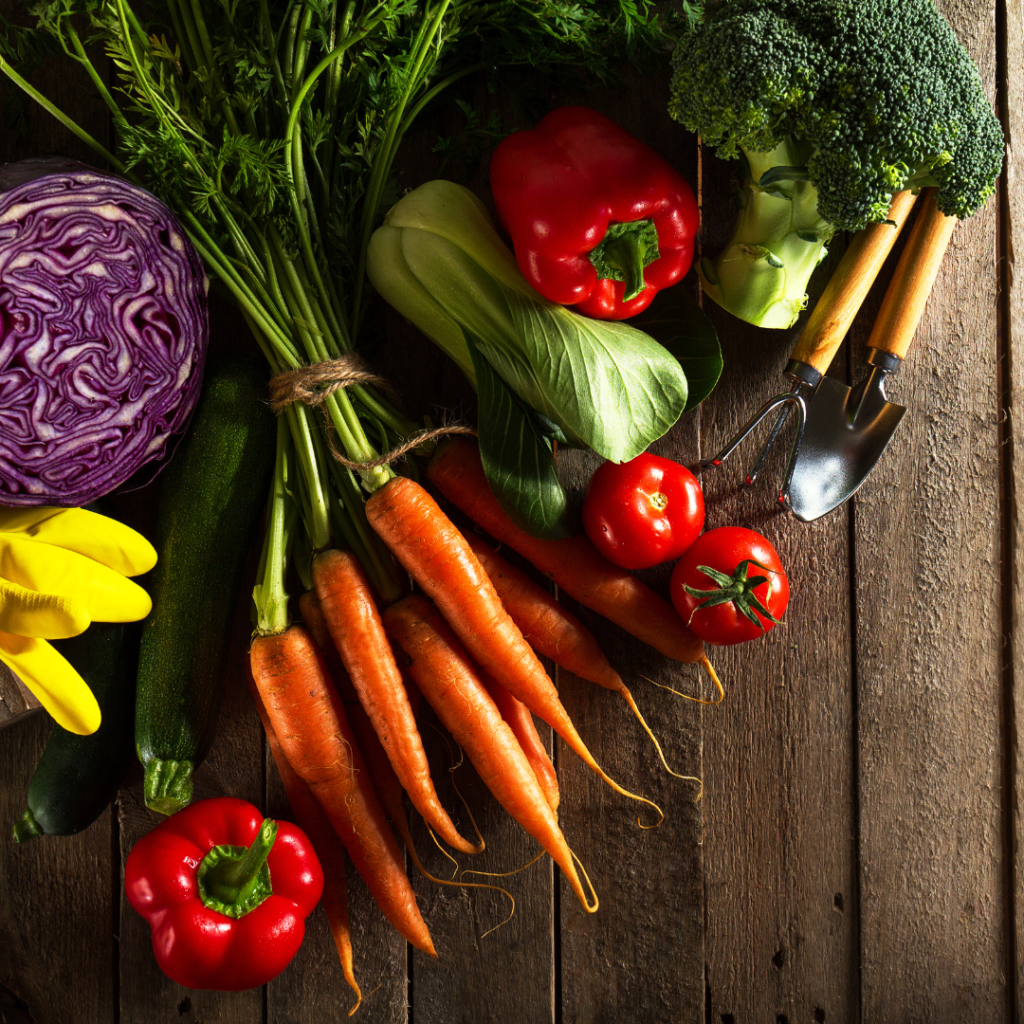WHY YOU NEED TO ADD ASPARAGUS TO YOUR DIET:
Asparagus is a nutrient-rich vegetable that is low in calories and fat. It is a good source of fibre, vitamins A, C, and K, and minerals such as folate, potassium, and magnesium. Asparagus has been linked to a number of health benefits, including:
- Reduced risk of cancer. Asparagus contains antioxidants that can help protect cells from damage. Some studies have shown that asparagus may help reduce the risk of certain types of cancer, such as bladder cancer and prostate cancer.
- Improved heart health. Asparagus is a good source of fibre, which can help lower cholesterol levels. It is also a good source of potassium, which can help regulate blood pressure.
- Boosted immunity. Asparagus is a good source of vitamin C, which is an important nutrient for the immune system.
- Improved digestion. Asparagus is a good source of fibre, which can help keep the digestive system healthy.
- Weight loss. Asparagus is low in calories and fat, making it a good choice for people who are trying to lose weight or maintain a healthy weight.
Even though asparagus is rich in all the nutrients mentioned above the ones I am going to talk about are some that tend to go unnoticed by most people I find them super interesting because of their health benefits, they are:
- Vitamin K
- Beta-Carotene
- Lutein and Zeaxanthin
- Vitamin B6
Vitamin K: What You Need to Know
Vitamin K is a fat-soluble vitamin that is essential for blood clotting. It is also involved in bone metabolism and the regulation of calcium levels in the blood. Vitamin K is found in a variety of foods, including leafy green vegetables, broccoli, and Brussels sprouts.
Health Benefits of Vitamin K
Vitamin K has been linked to a number of health benefits, including:
- Reduced risk of blood clots. Vitamin K is essential for blood clotting. A deficiency in vitamin K can lead to a condition called hypoprothrombinaemia, which is characterized by a prolonged bleeding time.
- Improved bone health. Vitamin K is involved in bone metabolism. A deficiency in vitamin K can lead to a condition called osteoporosis, which is characterized by weak and brittle bones.
- Reduced risk of cancer. Some studies have shown that vitamin K may help reduce the risk of certain types of cancer, such as colon cancer and prostate cancer.
- Reduced risk of heart disease. Vitamin K may help reduce the risk of heart disease by helping to regulate calcium levels in the blood.
- Improved brain health. Some studies have shown that vitamin K may help improve brain function in people with Alzheimer’s disease and other types of dementia.
How to Get Enough Vitamin K
The recommended daily intake (RDI) of vitamin K for adults is 90 micrograms (mcg) for women and 120 mcg for men. You can get vitamin K from a variety of foods, including:
- Leafy green vegetables, such as spinach, kale, and collard greens
- Broccoli
- Brussels sprouts
- Cabbage
- Lettuce
If you are not getting enough vitamin K from your diet, you may want to consider taking a supplement. However, it is important to talk to your doctor before taking a supplement, especially if you are pregnant, breastfeeding, or taking any other medications. More info about vitamin K here.
Conclusion
Vitamin K is an important nutrient that plays a role in a number of important bodily functions. Getting enough vitamin K from your diet is important for maintaining good health. However, it is important to avoid taking too much vitamin K, as this can be harmful.
Beta Carotene
Beta carotene is a carotenoid, which is a type of pigment that gives fruits and vegetables their bright colours. It is also a precursor to vitamin A, which is essential for good health. That means when your body ingests beta carotene it will be transformed into vitamin A. Beta carotene has been linked to a number of health benefits, including:
- Eye health: Beta carotene is important for eye health, studies show it may help protect against age-related macular degeneration (AMD), a leading cause of vision loss, especially as we age. AMD is a condition that damages the retina, the light-sensitive tissue at the back of the eye. Beta carotene may help protect the retina from damage by free radicals, which are unstable molecules that can damage cells.
- Immune system health: Beta carotene is an antioxidant, and antioxidants help protect the body from damage caused by free radicals. Free radicals have been linked to a number of chronic diseases, including cancer and heart disease. Beta carotene may help boost the immune system by helping the body fight off infection.
- Skin health: Beta carotene may help protect the skin from damage caused by the sun’s ultraviolet (UV) rays. UV rays can damage the skin’s DNA, which can lead to skin cancer. Beta carotene may help protect the skin from UV damage by acting as an antioxidant and by helping the skin produce melanin, a pigment that gives skin its colour.
- Cancer prevention: Some studies have suggested that beta carotene may help reduce the risk of certain types of cancer, such as lung cancer and prostate cancer. However, more research is needed to confirm these findings.
Beta carotene is a safe and effective nutrient for most people. However, it is important to note that too much beta carotene can cause a condition called carotenemia, which causes the skin to turn orange. This is usually harmless, but it can be unsightly. People who smoke are more likely to develop carotenemia, so they should avoid taking beta-carotene supplements.
The best way to get beta carotene is from food. Good sources of beta carotene include:
- Carrots
- Sweet potatoes
- Cantaloupe melon
- Mango
- Cooked Kale
- Spinach
- Broccoli
- Brussels sprouts
- Squash
It is recommended that adults get 1.5 milligrams (mg) of beta-carotene per day.
Vitamin B6: What you need to know
Vitamin B6, also known as pyridoxine, is an essential nutrient that plays a role in many important bodily functions. It is involved in the production of red blood cells, the metabolism of carbohydrates, proteins, and fats, and the creation of neurotransmitters, which are chemicals that send messages between nerve cells.
Vitamin B6 is also important for maintaining a healthy immune system, nervous system, and skin.
Health Benefits of Vitamin B6
- Reduces the risk of anaemia. Vitamin B6 is needed for the production of red blood cells, which carry oxygen throughout the body. A deficiency in vitamin B6 can lead to anaemia, a condition in which the body does not have enough red blood cells.
- Improves mood. Vitamin B6 is involved in the production of neurotransmitters, such as serotonin and dopamine, which play a role in mood regulation. A deficiency in vitamin B6 can lead to symptoms such as depression, anxiety, and irritability.
- Boosts the immune system. Vitamin B6 is important for the function of the immune system. A deficiency in vitamin B6 can increase the risk of infections.
- Protects the nervous system. Vitamin B6 is needed for the maintenance of the nervous system. A deficiency in vitamin B6 can lead to symptoms such as nerve damage, numbness, and tingling.
How to Get Enough Vitamin B6
The recommended daily intake (RDI) of vitamin B6 for adults is 1.5 milligrams (mg). You can get vitamin B6 from a variety of foods, including:
- Whole grains
- Nuts
- Seeds
- Fruits
- Vegetables
Vitamin B6 is an essential nutrient that plays a role in many important bodily functions. Getting enough vitamin B6 from your diet is important for maintaining good health. However, it is important to avoid taking too much vitamin B6, as this can be harmful
Lutein and Zeaxanthin
We still don’t know much about lutein and zeaxanthin but what we do know is that they are carotenoids, which are pigments that give fruits and vegetables their bright colours. They are also found in the retina, the light-sensitive tissue at the back of the eye. Lutein and zeaxanthin are thought to act as antioxidants, protecting the retina from damage caused by free radicals. Free radicals are unstable molecules that can damage cells, and they have been linked to a number of chronic diseases, including age-related macular degeneration (AMD), cataracts, and heart disease.
Health Benefits of Lutein and Zeaxanthin
Lutein and zeaxanthin have been linked to a number of health benefits, including:
- Reduced risk of age-related macular degeneration (AMD). AMD is a leading cause of vision loss in older adults. Lutein and zeaxanthin are thought to help protect the retina from damage caused by free radicals, which can lead to AMD.
- Reduced risk of cataracts. Cataracts are a clouding of the lens in the eye that can lead to blurry vision. Lutein and zeaxanthin are thought to help protect the lens from damage caused by free radicals, which can lead to cataracts.
- Reduced risk of heart disease. Lutein and zeaxanthin are thought to help protect the heart from damage caused by free radicals. Free radicals can damage the cells in the heart, which can lead to heart disease.
- Reduced risk of cancer. Lutein and zeaxanthin are thought to help protect the body from cancer. Free radicals can damage the DNA in cells, which can lead to cancer.
How to Get Enough Lutein and Zeaxanthin
The best way to get enough lutein and zeaxanthin is to eat a diet rich in fruits and vegetables. Good sources of lutein and zeaxanthin include:
- Dark green leafy vegetables, such as spinach, kale, and collard greens
- Oranges
- Peaches
- Strawberries
Lutein and zeaxanthin are important nutrients that can help to protect your health. By eating a diet rich in fruits and vegetables, you can get enough lutein and zeaxanthin to help reduce your risk of age-related macular degeneration, cataracts, heart disease, and cancer.
Conclusion:
Asparagus is a versatile vegetable that can be enjoyed in a variety of ways. It can be steamed, roasted, grilled, or eaten raw. Asparagus is a delicious and nutritious addition to any meal.
Here are some additional tips for getting the most nutrients from asparagus:
- Choose fresh asparagus. Asparagus is best when it is fresh. Look for spears that are firm and bright green.
- Trim the ends. Before cooking asparagus, trim the ends of the spears. This will help to remove any tough fibres.
- Cook asparagus quickly. Asparagus is best when it is cooked quickly. Overcooking can make it tough and stringy.
I hope this blog post has helped you to learn more about the health benefits of asparagus. By including asparagus in your diet, you can help to improve your overall health and well-being.
Go shopping for some asparagus this week!
All the best,
Martim
If you want to read my blog post about how to make healthy eating a lifestyle and not only a temporary thing, read this.

